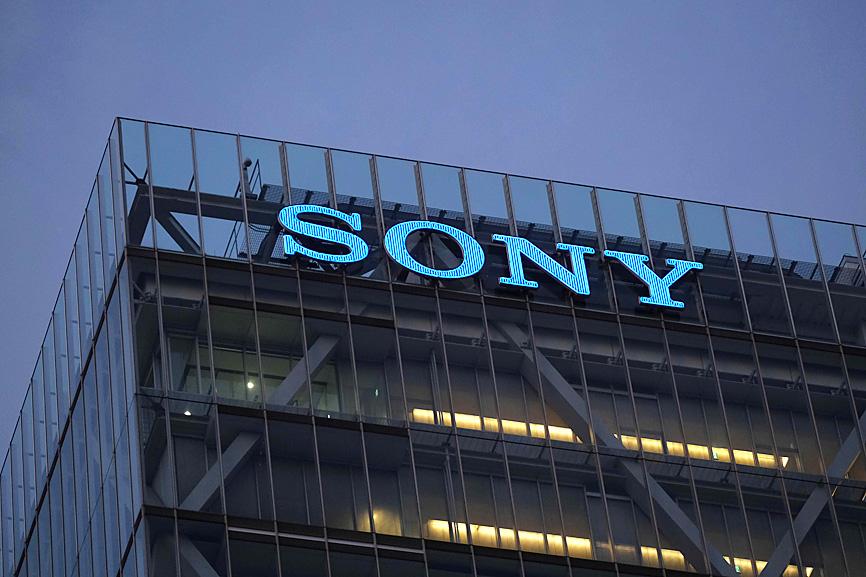Sony Corp is to buy AT&T Inc’s animation business Crunchyroll for US$1.175 billion, the two companies said yesterday, as the Japanese electronics conglomerate aims to beef up its entertainment content and distribution businesses.
The deal would give Sony access to Crunchyroll’s 3 million paying subscribers across more than 200 countries and regions, helping Sony compete more globally with entertainment giants such as Netflix Inc.
Sony’s Funimation Global Group, a US animation distributor with 1 million paying subscribers, would own Crunchyroll, currently part of AT&T’s WarnerMedia segment.

Photo:AFP
AT&T has been looking to monetize its non-core assets since CEO John Stankey took over in June. The latest deal would allow it to invest in other focuses of WarnerMedia, including content creation and gaming.
Despite Crunchyroll’s loyal following among anime fans, AT&T felt the anime streaming service was too niche for the broader audience its streaming service HBO Max wants to pursue, a source familiar with the company said.
The proceeds are to be paid in cash at closing, AT&T and Sony said.
Sony is boosting gaming and entertainment businesses under CEO Kenichiro Yoshida’s strategy to increase recurring revenue streams that cushion the impact of volatile hardware sales cycles.
Sony bought Funimation in 2017 for about US$143 million.
The animation business has been thriving recently on the record-breaking success of the Japanese animated film Demon Slayer — codistributed by Sony’s music unit Aniplex Inc.

South Korea’s equity benchmark yesterday crossed a new milestone just a month after surpassing the once-unthinkable 5,000 mark as surging global memory demand powers the country’s biggest chipmakers. The KOSPI advanced as much as 2.6 percent to a record 6,123, with Samsung Electronics Co and SK Hynix Inc each gaining more than 2 percent. With the benchmark now up 45 percent this year, South Korea’s stock market capitalization has also moved past France’s, following last month’s overtaking of Germany’s. Long overlooked by foreign funds, despite being undervalued, South Korean stocks have now emerged as clear winners in the global market. The so-called “artificial intelligence

NEW IDENTITY: Known for its software, India has expanded into hardware, with its semiconductor industry growing from US$38bn in 2023 to US$45bn to US$50bn India on Saturday inaugurated its first semiconductor assembly and test facility, a milestone in the government’s push to reduce dependence on foreign chipmakers and stake a claim in a sector dominated by China. Indian Prime Minister Narendra Modi opened US firm Micron Technology Inc’s semiconductor assembly, test and packaging unit in his home state of Gujarat, hailing the “dawn of a new era” for India’s technology ambitions. “When young Indians look back in the future, they will see this decade as the turning point in our tech future,” Modi told the event, which was broadcast on his YouTube channel. The plant would convert

‘SEISMIC SHIFT’: The researcher forecast there would be about 1.1 billion mobile shipments this year, down from 1.26 billion the prior year and erasing years of gains The global smartphone market is expected to contract 12.9 percent this year due to the unprecedented memorychip shortage, marking “a crisis like no other,” researcher International Data Corp (IDC) said. The new forecast, a dramatic revision down from earlier estimates, gives the latest accounting of the ongoing memory crunch that is affecting every corner of the electronics industry. The demand for advanced memory to power artificial intelligence (AI) tasks has drained global supply until well into next year and jeopardizes the business model of many smartphone makers. IDC forecast about 1.1 billion mobile shipments this year, down from 1.26 billion the prior

People stand in a Pokemon store in Tokyo on Thursday. One of the world highest-grossing franchises is celebrated its 30th anniversary yesterday.